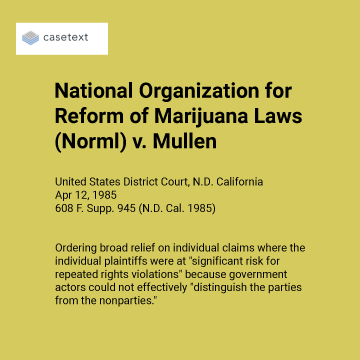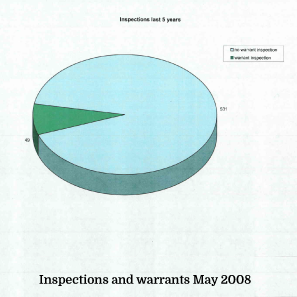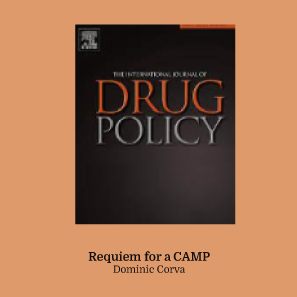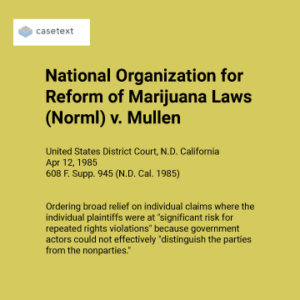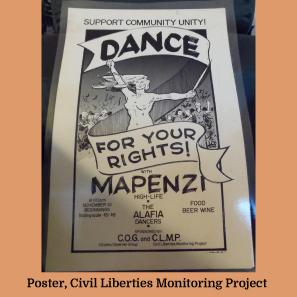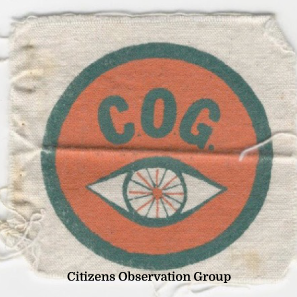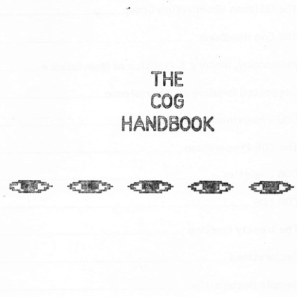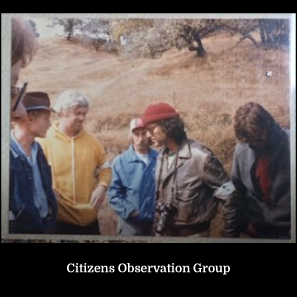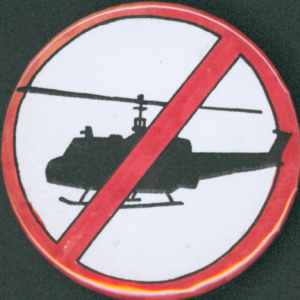FINDINGS AND ORDER
1. CAMP personnel on numerous occasions have conducted warrantless searches and seizures. The defendants have failed to show any exigent circumstances or other exceptions to the warrant requirement that would justify these fourth amendment violations.
2. CAMP has regularly used helicopters in a manner that constitutes warrantless searches of homes and curtilages in violation of the fourth amendment, and in a manner that may have effectively detained individuals without reasonable suspicion or probable cause in violation of the fourth amendment.
3. CAMP has regularly violated applicable Federal Aviation Administration regulations and has posed an ongoing hazard to the public. Any helicopter surveillance conducted in violation of FAA safety regulations is presumptively an unreasonable manner of search.
4. CAMP policy and the defendants heretofore either have condoned or failed to correct these practices, despite citizen complaints and the concern previously expressed by this Court.
5. Absent immediate injunctive relief, the plaintiffs, the declarants, and other California residents similarly situated in the several areas where CAMP is operating are likely to suffer irreparable harm in the form of continued violations of their constitutional rights. For so long as the CAMP program continues this year or in future years, these same residents are likely to suffer the same or similar injuries again.
6. The plaintiffs have demonstrated probable success on the merits of at least some of their claims, or in the alternative have raised serious questions and have a fair chance of success on those claims.
7. The Court has no desire or intention to hamper the legitimate law enforcement efforts of CAMP personnel. Fortunately, the effectiveness of the CAMP program does not hinge on warrantless searches and seizures or the indiscriminate and dangerous use of helicopters for surveillance. Neither the CAMP program nor the public interest in marijuana eradication will be significantly impaired by restrictions on these activities that merely conform them to constitutional and statutory requirements.
Good cause appearing therefor, the Court enjoins the defendants and each of them in the following manner:
1. Defendants and CAMP personnel are enjoined from entering by foot, motor vehicle, or helicopter any private property other than open fields without a warrant obtained on probable cause.
2. When defendants are on public land, or on private land pursuant to a proper warrant, they are enjoined from entering adjacent or nearby private property other than open fields, unless a warrant issues on probable cause, or unless exigent circumstances exist. Mere speculation that a nearby parcel of land may in some way pose a hazard to CAMP personnel does not constitute exigent circumstances.
3. Defendants are enjoined from using helicopters forgeneral surveillance purposes, except over open fields. When conducting surveillance over open fields, helicopters shall not fly within 500 feet of any structure, person, or vehicle. Helicopters surveying open fields in the vicinity of residential structures shall not fly within the hemisphere extending 500 feet from the outer circumference of the curtilage of any residence, and shall not survey any home or curtilage.
4. When CAMP helicopters are not conducting surveillance, but areferrying personnel, supplies, or cut crops, the helicopters shall take the most direct route available that overflies the fewest possible private residences, unless safety requires otherwise. Helicopters shall maintain an altitude of at least 500 feet, except when landing on or leaving the target property, or unless safety requires otherwise.
5. Before any further CAMP flights or ground activities are undertaken, defendants are ordered to: a) meet with all CAMP pilots, and all supervisorial ground personnel, and instruct them as to the content of this order; b) give all CAMP personnel a complete copy of the terms of this injunction; and c) submit to the Court appropriate affidavits detailing this instruction and distribution.
This Order supersedes the preliminary injunction orders issued October 18, 1984, and February 20, 1985, and will be in effect from April 12, 1985, until further order of this Court or until resolution at trial on the merits. The Order is in force for all CAMP activities in all California counties. The motion for stay is denied.
IT IS SO ORDERED.

